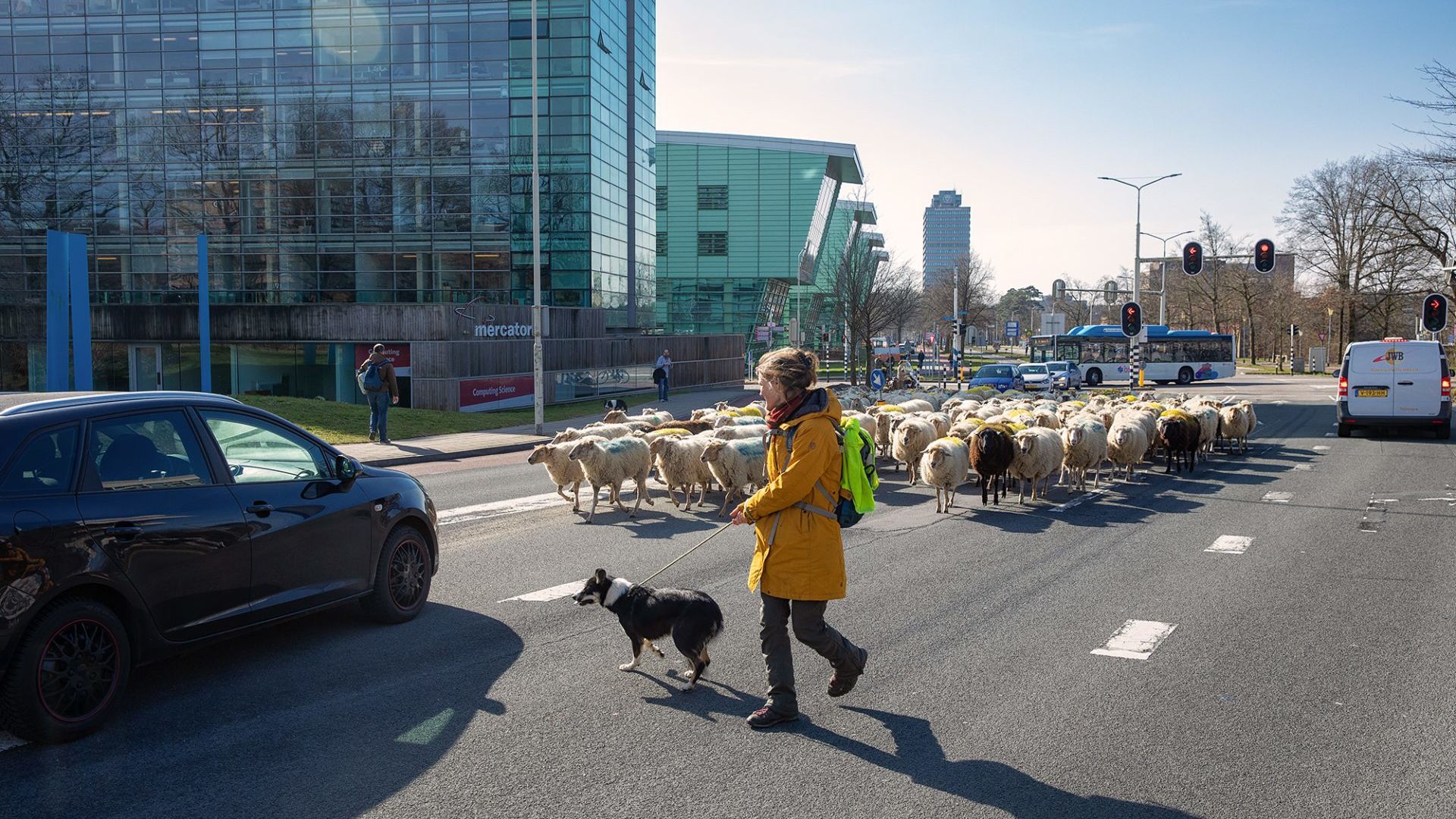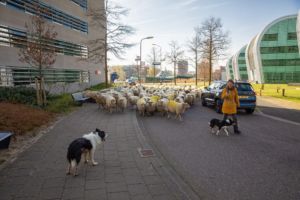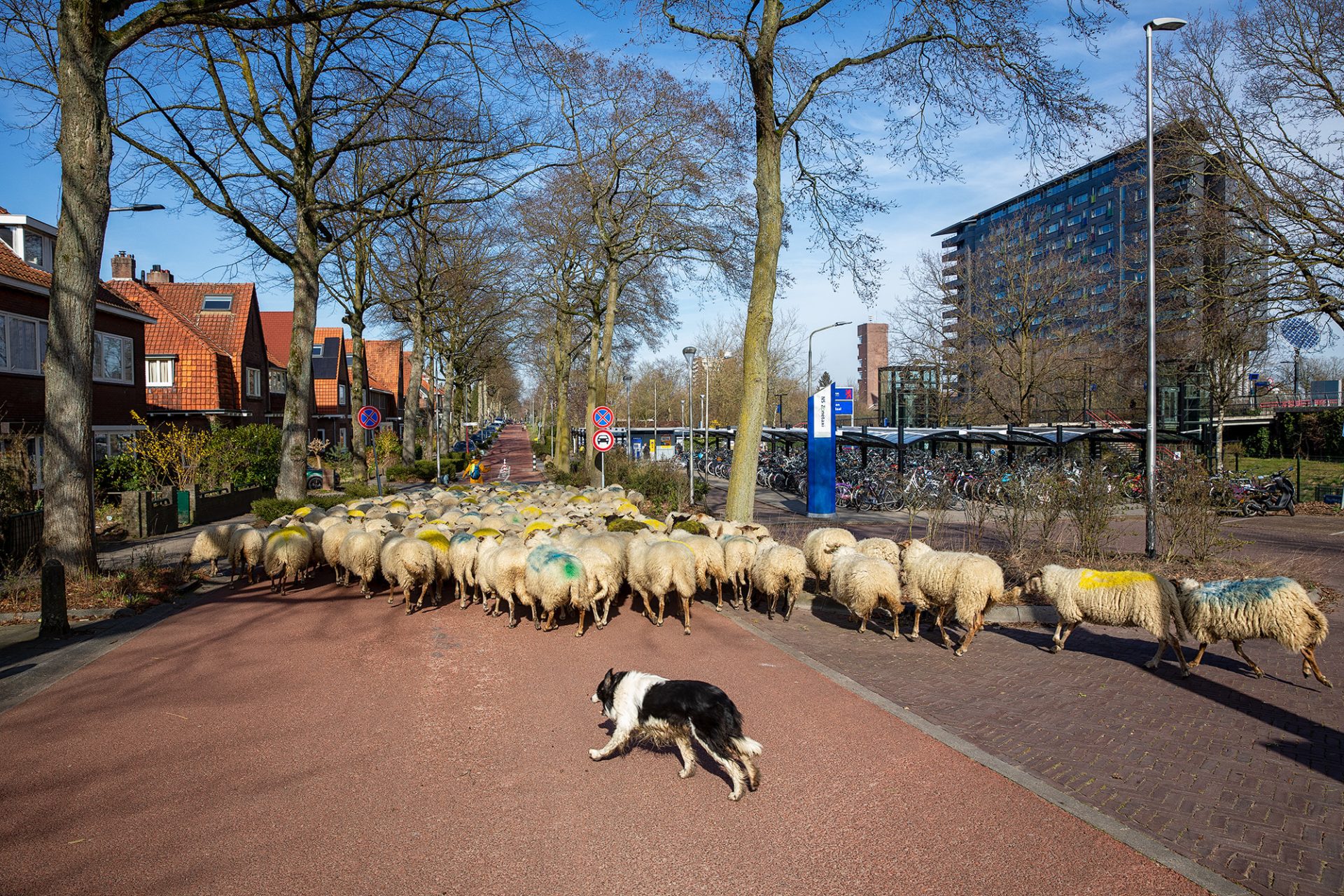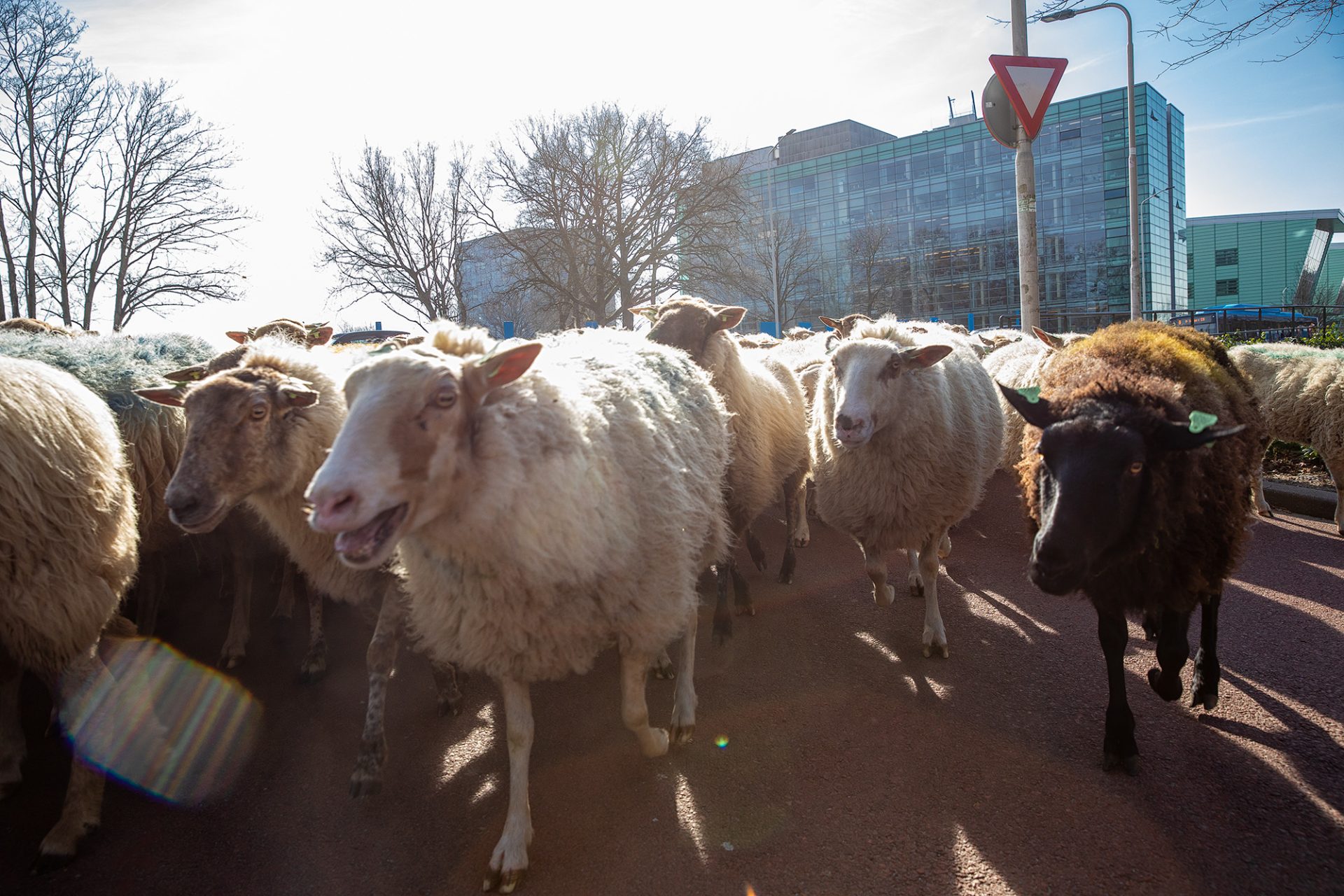Herd behaviour on campus
-
 Photo by Dick van Aalst
Photo by Dick van Aalst
If you biked to campus on Wednesday morning, you may have run into a herd of yellow-and-blue sheep. Shepherd Hester van Male walked her dogs and sheep from Molenhoek to the sports park in Ressen. She passed her former university along the way.
‘They were really feeling it’, Hester van Male says on the phone in sports park Ressen. She arrived there with her herd after a little over three hours of walking. The herd was grazing at the Sprinkhaanreservaat near Molenhoek and had to be taken to their next assignment in Ressen.
The sheep walked behind the Huygens building, alongside Heyendaal station, and via the Spoorkuil and the Spoorbrug towards Ressen. For Hester van Male it was a walk through her alma mater, where she studied Law, as well as French Language and Culture. Her husband, co-owner of landscaping company Op Dreef, is an alumnus of Biology.
Collision
The sheep fared well in the busy traffic. ‘Although the dog did get hit by a cyclist’, according to Van Male. ‘That’s what happens when you text while cycling.’ Obviously, the dog also wasn’t paying attention. Van Male: ‘The dog only has eyes for the sheep.’ The dog managed to come away unscathed.

Once the sheep have done their job in Ressen, they will walk to Arnhem for their next assignment. There is great demand for ecological grazing, according to Van Male. ‘If we want to scale up our business, we may need to hire additional staff. But we also want to ensure quality. Ecological grazing means that it is done evenly, and that you shield rare types of plants. We don’t want to keep the herds in one place for too long, so they only eat the productive species. That gives herbaceous plants more of a chance to grow.
Campus grazing
Should the university ever need ecological grazing, then they can certainly give Op Dreef a call, Van Male says. ‘But right now, I see mostly stone and some shrubberies on campus.’

Once Van Male has placed ‘flexnets’, she can leave the herd in Ressen. She will return regularly to change pastures, so that the sheep can graze different areas. Sometimes the sheep graze on-the-go, which means Van Male needs to be present and walk alongside with the dogs.
‘Feed sheep, not war’
The yellow-and-blue paint on the sheep’s coats is meant in support of Ukraine. Hester van Male: ‘we say: feed sheep, not war!’




